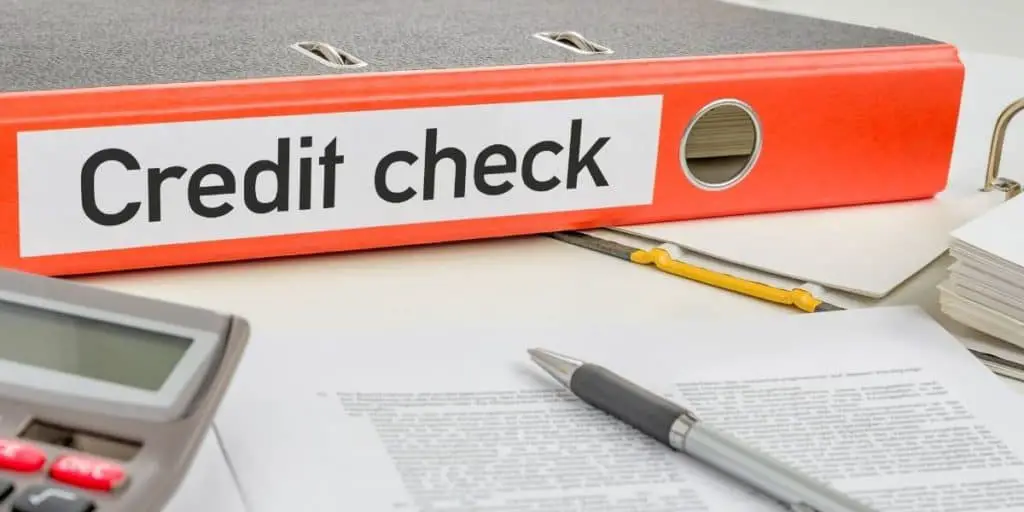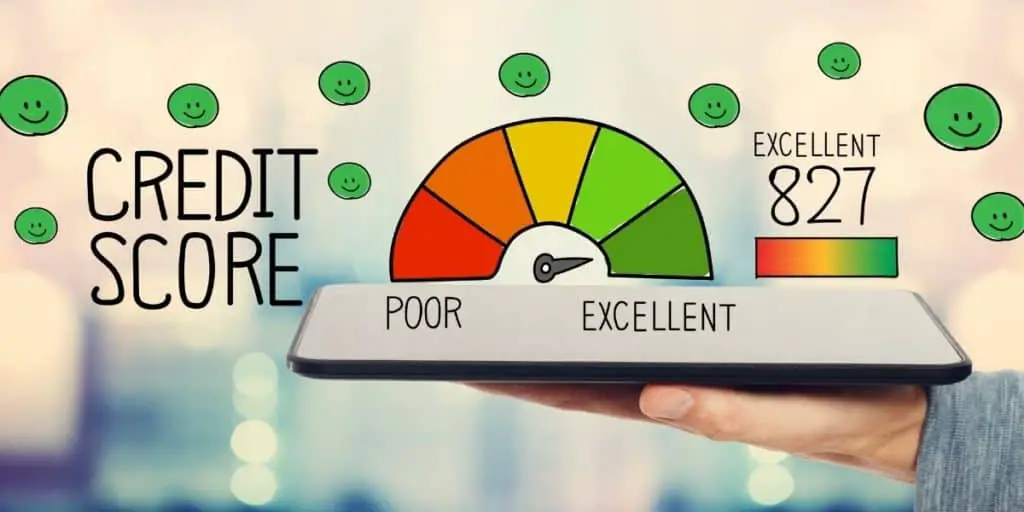Forex trading is a highly profitable business that can give you financial freedom. However, it can negatively affect your financial life in many aspects if it fails. The question is, does trading forex affect your credit score like many forms of investment?
Forex affects your credit score through credit checks required for registration. These checks ensure your credit can cover your potential losses. If you have poor credit, this check will lower it further. But you can make up for it by making money to manage your costs without credit cards.
In this article, we’ll talk about different credit checks, including the ones in forex. We’ll also talk about other markets and their effects on your credit and explain how you can improve your credit.
IMPORTANT SIDENOTE: I surveyed 1500+ traders to understand how social trading impacted their trading outcomes. The results shocked my belief system! Read my latest article: ‘Exploring Social Trading: Community, Profit, and Collaboration’ for my in-depth findings through the data collected from this survey!
Table of Contents
Credit Check
One important factor affecting your credit score is credit checks done by different agencies and financial institutions. They perform credit checks to see if a person is credit-worthy so they can work with them. There are two types of credit checking: a hard credit check and a soft credit check.

- A hard credit check occurs when you want to get a loan for which you need credit. The lender goes through your credit history to decide whether or not you’ll be able to pay back your loans. For example, when you apply for a student or car loan, the mortgage company will run a credit check.
- A soft credit check isn’t about applying for credit, but only gets a picture of your credit. When a credit card company checks your credit to give you a pre-approved card, it’s running a soft inquiry. The background check performed by a would-be employer about a potential employee is another example. Institutes or companies don’t need your permission to run soft inquiries, so you won’t even notice them.
Between these two types of credit checks, only hard checks affect your credit score. And according to FICO, every hard inquiry will take up to five scores off your credit.
Through soft-checking, you can check your score without lowering your credit. So, to avoid adverse effects on your score, act preemptively, and instead of having a lender check your credit, do it yourself. This way, if you don’t have enough credit, you’ll stop the process before the lender runs a hard inquiry that leads to lower scores.
Credit Checks for Forex
When you apply with a broker to start trading in forex, they’ll run credit checks to confirm you have enough credit to handle your side of the trade. Just like your potential landlord does a background check to make sure you’ll pay your rent, credit checks in forex ensure you have enough credit to execute trades.
In addition to capital requirements, credit checks serve as safety measures against traders to guarantee their financial viability should any problem occur down the road.
The broker ensures you can cover any potential losses if you enter a failing trade and run into a negative balance. So, if you can’t cover the loss, having enough credit on your part prevents the broker from bearing the loss.
The most important reason brokers run credit checks is leverage, the credit given to retail traders by brokers to execute trades. It allows the trader to engage in trades that they couldn’t otherwise afford to enter. This way, they can make a profit with far less money.
The amount of leverage your brokerage gives you depends on your credit and how you have handled your debts before. If your credit score is high, indicating you’ve defaulted on a bill or a loan, you’ll be eligible to get more leverage. Conversely, a poor credit score indicates you’re a high-risk retail trader. So, you’ll be less likely to receive leverage.
That’s why brokers have to perform a credit check to see what your credit history looks like. And since these credit checks are hard inquiries, they can affect your credit score up to 5 points. But the credit checks only take place when you open the account and not for every transaction. So, you can make up for it and increase your credit through forex trading.
You could reverse the impact of inquiries on your credit by making profits in forex. By becoming a savvy trader, you can earn enough cash to pay off your loans and pay for your stuff without using credit cards. This way, you can avoid opening several inquiries simultaneously, which has severe bearings on your credit account.
Other Investment Markets
So, you may be concerned that investing in other markets may affect your credit score like the forex does. Read about some common investment markets and their effects on your credit score:
Stocks
The stock market is traditionally the most popular investment venue. Trading stocks can affect your credit score, depending on how you go about it:
- If you register for a regular account, the brokerage won’t need a hard credit check. So, your history won’t see any impacts.
- However, a margin account, which enables you to use leverage, requires a hard inquiry.
- If you open a trading account online, the brokerage needs to verify your identity. For this purpose, they’ll run a hard inquiry, which will affect your score.
Bonds
Unlike stocks, trading bonds doesn’t involve buying shares. Instead, you lend the government or a specific company your money, and they guarantee to give it back along with the interest once the bond matures.
So, the only credit check done in bond trading is for identity verification, which is a soft inquiry and doesn’t affect your score.
Mutual Funds
Mutual funds combine different trading instruments, including bonds and stocks, to increase profits and spread the risk. Therefore, the credit checks described above will apply for mutual funds, too.
How To Raise Credit Scores?
The credit bureaus assess five primary factors to calculate your credit score: your payment history, credit types, the total debt, new credit inquiries, and the credit history length. Each of them accounts for a fixed percentage of your score. Based on these criteria, you can do the following to raise your credit score:
- Never delay paying your bills. Your payment history indicates whether or not you pay your bills on time. So, if you have low credit, it takes you six months of uninterrupted on-time bill payments to improve your scores.
- Improve your credit line. Increasing your credit for all the credit cards you have will help you improve your credit score. But remember not to spend your credit since it’ll reduce your credit utilization amount.
- Keep your credit cards. If you have several credit cards that you don’t use, don’t close them since it’ll hurt your credit. Instead of closing the accounts, keep them in a safe place to avoid fraud and misuse.
- Use credit repair services. If you can’t improve your credit due to time shortage, ask a credit repair company to talk to your creditors to raise your credit by paying a monthly fee.

Author’s Recommendations: Top Trading and Investment Resources To Consider
Before concluding this article, I wanted to share few trading and investment resources that I have vetted, with the help of 50+ consistently profitable traders, for you. I am confident that you will greatly benefit in your trading journey by considering one or more of these resources.
- Roadmap to Becoming a Consistently Profitable Trader: I surveyed 5000+ traders (and interviewed 50+ profitable traders) to create the best possible step by step trading guide for you. Read my article: ‘7 Proven Steps To Profitable Trading’ to learn about my findings from surveying 5000+ traders, and to learn how these learnings can be leveraged to your advantage.
- Best Broker For Trading Success: I reviewed 15+ brokers and discussed my findings with 50+ consistently profitable traders. Post all that assessment, the best all round broker that our collective minds picked was M1 Finance. If you are looking to open a brokerage account, choose M1 Finance. You just cannot go wrong with it! Click Here To Sign Up for M1 Finance Today!
- Best Trading Courses You Can Take For Free (or at extremely low cost): I reviewed 30+ trading courses to recommend you the best resource, and found Trading Strategies in Emerging Markets Specialization on Coursera to beat every other course on the market. Plus, if you complete this course within 7 days, it will cost you nothing and will be absolutely free! Click Here To Sign Up Today! (If you don’t find this course valuable, you can cancel anytime within the 7 days trial period and pay nothing.)
- Best Passive Investment Platform For Exponential (Potentially) Returns: By enabling passive investments into a Bitcoin ETF, Acorns gives you the best opportunity to make exponential returns on your passive investments. Plus, Acorns is currently offering a $15 bonus for simply singing up to their platform – so that is one opportunity you don’t want to miss! (assuming you are interested in this platform). Click Here To Get $15 Bonus By Signing Up For Acorns Today! (It will take you less than 5 mins to sign up, and it is totally worth it.)
Conclusion
Different factors can affect your credit score, including delayed payments, short credit history, the amount of debt, and credit inquiries.
Credit inquiries can be hard or soft, with soft inquiries capable of lowering your credit for up to 5 scores.
Forex can affect your credit through credit checks. Since it requires a certain degree of credit to guarantee the trader’s ability to cover losses, they need to have enough credit. Plus, leverage, which is the money brokers lend to traders, is another factor that makes hard inquiries necessary.
BEFORE YOU GO: Don’t forget to check out my latest article – ‘Exploring Social Trading: Community, Profit, and Collaboration’. I surveyed 1500+ traders to identify the impact social trading can have on your trading performance, and shared all my findings in this article. No matter where you are in your trading journey today, I am confident that you will find this article helpful!
Affiliate Disclosure: We participate in several affiliate programs and may be compensated if you make a purchase using our referral link, at no additional cost to you. You can, however, trust the integrity of our recommendation. Affiliate programs exist even for products that we are not recommending. We only choose to recommend you the products that we actually believe in.
